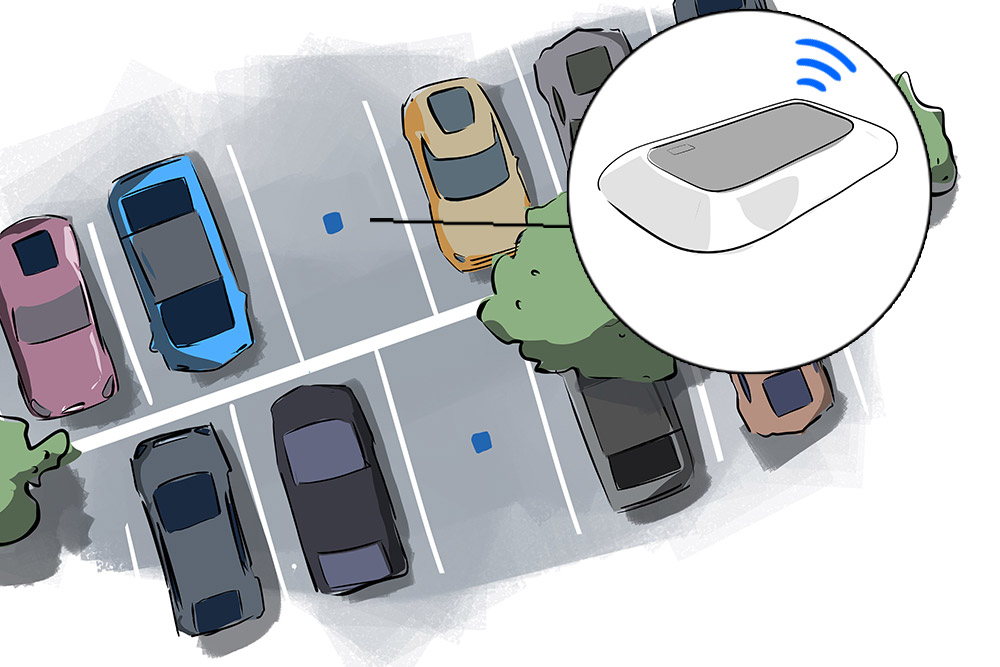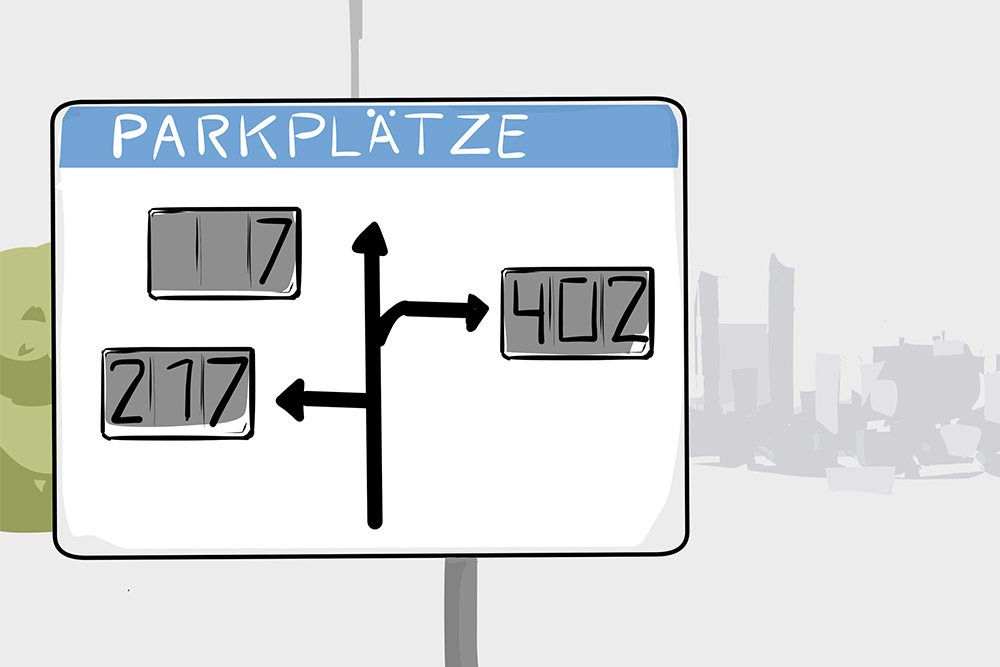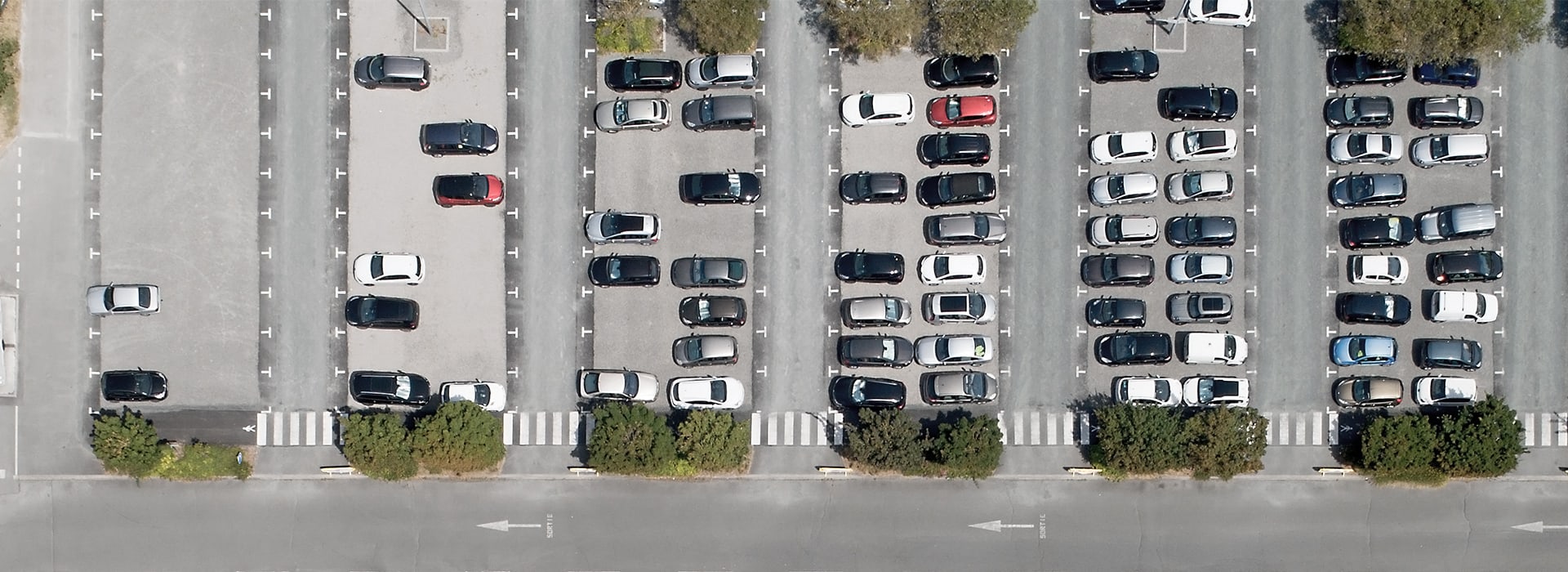Smart Parking – Monitoring of parking spaces
Initital situation: 30% of CO2 emissions in city centres are attributable to the search for a parking space
According to traffic experts, around 30% of the traffic volume and the associated CO2 emissions in city centres in urban areas are caused by the search for the right parking space. Finding a parking space is not only inefficient and time-consuming, but also has a long-term impact on the environment and well-being. In order to ensure optimal utilisation of parking spaces and traffic infrastructure, standard monitoring and control is necessary.
Smart sensors detect when a parking space is occupied
Smart ground sensors use LoRaWAN to record when a parking space has been occupied. With the help of this data, a digital twin of the entire car park is created, which can be used to view the status of parking spaces in real time.
Ground sensors can also be used to monitor e-charging stations and escape routes. In addition, an IoT connection to traffic control systems is possible.


Optimal use of parking spaces with Smart Parking
- Parking areas are used optimally
- Parking space control made easier
- Increase in process efficiency
- Savings in CO2 emissions
- Safety: escape routes are not blocked
Monitoring parking spaces helps to significantly reduce the approximately 30% of CO2 emissions in city centres and the volume of traffic. Real-time monitoring also enables optimal utilisation of parking spaces, which also has a positive impact on the environment and the well-being of citizens.








